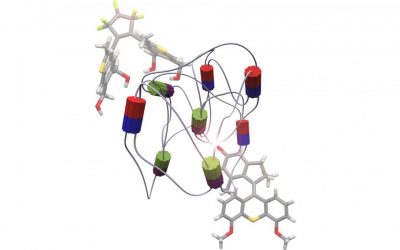Researchers are exploring a new approach to cancer treatment by transforming tumor cells into a more rigid, fibrotic state, which may help to slow cancer’s growth.
Traditionally, fibrosis — a process that thickens tissue — has been studied mainly in cells surrounding tumors, but this study targets the tumor cells themselves. By using a combination of a natural glucose disaccharide, trehalose dimycolate and mesoporous silica nanoparticles, scientists aim to create a fibrotic response that restricts tumor cells’ ability to spread.
However, tumor cells have shown resistance due to extra DNA (ecDNA) that allows them to bypass fibrosis. To counter this, the researchers added WRN exonuclease to the treatment to help clear this DNA and enhance fibrosis.
In lab models, this improved method effectively transformed tumor cells into a fibrotic state, slowing cancer progression, and may offer a promising new direction for cancer therapies.
Find out more in the video
Reference: Weilong Zhong, Huijuan Liu, Tao Sun, et al,WRN Nuclease-Mediated EcDNA Clearance Enhances Antitumor Therapy in Conjunction with Trehalose Dimycolate/Mesoporous Silica Nanoparticles, Advanced Science (2024). DOI: 10.1002/advs.202407026









![How to Bend Electronic Devices without Breaking Them [Video]](https://www.advancedsciencenews.com/wp-content/uploads/2019/12/Feature-image-2-400x250.png)
![Advancing Cross‐point Memory Technology [Video]](https://www.advancedsciencenews.com/wp-content/uploads/2019/11/Feature_image-1-400x250.jpg)